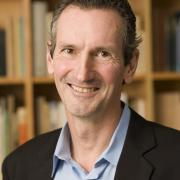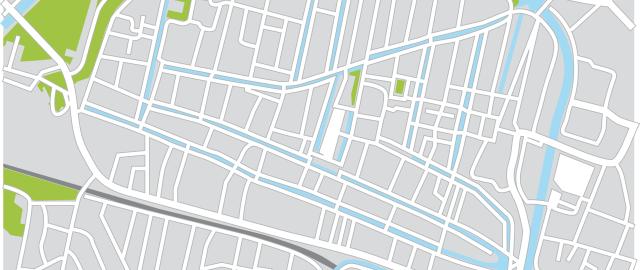Urban Ecosystem Services Symposium
New tools to guide ecosystem management in an urbanizing world
About the Conference
The Urban Ecosystem Services Symposium will explore the application and utility of urban ecosystem services scholarship by bringing together academics on the cutting edge of this science and city managers using the approach for urban planning. The event will assess the major questions and merits of the urban ecosystem services approach across global, regional, city, and community scales. The Symposium will engage around questions emerging from these studies and projects to catalyze a discussion and comparison of promising approaches and limitations.
Speaker Information
Sir Peter Crane is the Carl W. Knobloch Jr. Dean of the Yale School of the Environment. He is known internationally for his work on the diversity of plant life – its origin, fossil history, current status, conservation and use. He received his BSc and PhD degrees in botany from the University of Reading, UK and served on the faculty of that university from 1978 to 1981. In 1981 he moved to Indiana University, and from 1982 to 1999 he was at the Field Museum in Chicago. From 1992 to 1999 he served as Director of the Field Museum with overall responsibility for the Museum’s scientific programmes. He also established the Office of Environmental Programs and the Center for Cultural Understanding and Change at the Field Museum. From 1999 to 2006 Peter Crane was Director of The Royal Botanic Gardens, Kew one of the largest, most prestigious and influential botanical gardens in the world. In 2002 Kew was inscribed on the UNESCO list of World Heritage Sites. His tenure at Kew saw strengthening and expansion of the gardens’ scientific, conservation and public programmes on the variety of plant life as well as major improvements to the infrastructure for collections, science, public and staff. From 2006 to 2009 Peter Crane was the John and Marion Sullivan University Professor at The University of Chicago. He was elected to the Royal Society – the UK academy of sciences in 1998 and was knighted in the UK for services to horticulture and conservation in 2004. He is a Fellow of the American Academy of Arts and Sciences, Foreign Associate of the US National Academy of Sciences, a Foreign Member of the Royal Swedish Academy of Sciences, and a Member of the German Academy Leopoldina. He is the recipient of several honorary degrees from universities in the UK and US, including an honorary doctorate of science from Cambridge University. Peter Crane currently serves on the Board of the Global Crop Diversity Trust, the Chicago Botanic Garden, the Lady Bird Johnson Wildflower Center at the University of Texas, WWF-US, and the Gaylord and Dorothy Donnelley Foundation. Recently, Dean Crane was awarded the 2014 International Prize for Biology administered by the Japan Society for the Promotion of Science (JSPS) for his work on the evolutionary history of plants. The honor is awarded annually to individuals who have made outstanding contributions to the advancement of research in fundamental biology.
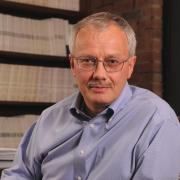
Abstract
How can ecosystem services help build sustaiable, resilient cities?
Speaker Information
Caswell Holloway was appointed Deputy Mayor
for Operations by Mayor Michael R. Bloomberg on August
4, 2011. As Deputy Mayor, Cas oversees 11 mayoral
agencies and offices and assists the Mayor in overseeing the
Police Department, Fire Department, Office of Emergency
Management, Office of Management and Budget, and the
Office of Labor Relations. After Hurricane Sandy Cas oversaw
Rapid Repairs, the City’s first-of-its-kind program to restore
power, heat, and hot water to thousands of New Yorkers in
their homes; and the creation of A Stronger, More Resilient
New York, the City’s plan for long-term resiliency. From
January 1, 2010 until his appointment as Deputy Mayor,
Cas served as the Commissioner of the New York City
Department of Environmental Protection. Cas appointed
DEP’s first Deputy Commissioner for Sustainability; created
an energy team to develop a new generation of natural gas
and renewable energy investments; initiated Water for the
Future, a $2 billion package of investments that will repair
19
leaks in the Delaware Aqueduct; and developed the NYC
Green Infrastructure Plan to improve water quality in the
City’s waterways. From 2006 until his appointment at DEP,
Cas served as Chief of Staff and Counsel to Deputy Mayor for
Operations Edward Skyler and as Special Advisor to Mayor
Bloomberg. He graduated cum laude from Harvard College
and with honors from the University of Chicago Law School.

Approaches to understanding and quantifying urban ecosystem services. Presenters will showcase diverse ecosystem services models sharing how they can quantify, monitor, and describe the urban ecosystem services in cities. Panelists will explore how these tools have been applied, current limitations and what they accomplish that other models cannot.
Abstract
Valuing ecosystem services in urban areas
Speaker Information
Dr. Edward Barbier is the John S Bugas Professor of
Economics, Department of Economics and Finance, University
of Wyoming. His main expertise is natural resource and
development economics as well as the interface between
economics and ecology. He has served as a consultant and
policy analyst for a variety of national, international and nongovernmental
agencies, including many UN organizations,
the OECD and the World Bank. Professor Barbier is on the
editorial boards of several leading economics and natural
science journals, and he appears in the 4th edition of Who’s
Who in Economics. In 2008, he was named by Cambridge
University as one of the 50 most influential thinkers on
sustainability in the world, and among his honors and
awards, he has received the 1991 Mazzotti Prize (Italy) for
contributions to economics and ecology. Professor Barbier
has authored over 200 peer-reviewed journal articles and
book chapters, written or edited 21 books, and published in
popular journals and media. His books include Blueprint for
a Green Economy (with David Pearce and Anil Markandya,
1989), Natural Resources and Economic Development (2005),
A Global Green New Deal (2010), Scarcity and Frontiers:
How Economies Have Developed Through Natural Resource
Exploitation (2011), Capitalizing on Nature: Ecosystems
as Natural Assets (2011) and A New Blueprint for a Green
Economy (with Anil Markandya, 2012).

Abstract
Visualizing our social infrastrcutuer: understanding and mapping environmental stewardship
Speaker Information
Dr. Erika Svendsen is a social scientist with the U.S. Forest Service, Northern Research Station and is based in New York City. Erika studies environmental stewardship and its relationship to civic engagement, social resilience and aspects of human well-being. She recently co-authored a book on Civic Engagement and Environmental Stewardship: How Planting Trees Strengthens the Roots of Democracy. Erika is part of the NYC Urban Field Station, a research-practitioner collaboration founded by the Forest Service and NYC Parks and dedicated to dedicated to improving the quality of life in urban areas by conducting and supporting research about social-ecological systems and natural resource management.

Abstract
i-Tree: assessing ecosystem services and values from trees
Speaker Information
David Nowak is an Emeritus Senior Scientist with the USDA Forest Service, Northern Research Station in Syracuse, NY. His research investigates urban forest structure, health, and change, and its effect on human health and environmental quality. He has authored over 375 publications and led the development of the i-Tree software suite that quantifies the benefits and values from vegetation globally.
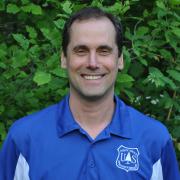
Abstract
Optimizing urban green infrastructure in a changing world
Speaker Information
Dr. Leslie Shoemaker joined TetraTech in 1991, and she
is currently responsible for our strategic planning, business
development, sustainability, and corporate communications
functions. Dr. Shoemaker coordinates our Strategic Initiatives
Program, which supports company-wide collaboration on
key services in our major growth markets. Dr. Shoemaker
is our Chief Sustainability Officer. She also leads the water
resources modelling and systems development team and
23
consults on the development of policy and programs for
watershed management and sustainable communities. Dr.
Shoemaker has more than 25 years of industry experience and
has previously served in various technical and management
capacities including project engineer, project manager, vice
president, and technical practice leader. Dr. Shoemaker holds
a B.A. degree in Mathematics from Hamilton College, a
Master of Engineering from Cornell University, and a Ph.D. in
Agricultural Engineering from the University of Maryland.

Abstract
Quantifying the value of natural habitats in minimizing flooding risk
Speaker Information
Dr. Robert McDonald is the Senior Scientist for Urban
Sustainability at The Nature Conservancy. He researches
the impact and dependences of cities on the natural world,
and is the lead scientist for much of the Conservancy’s urban
conservation work. Currently Dr. McDonald is leading a
global team of scientists mapping where the cities of the world
get their water, and evaluating their dependence on ecosystem
services and their vulnerability to climate change. He is also
working on a book, entitled “Conservation for Cities”, which
documents the role green infrastructure can play to the wellbeing
of urban residents. Another major research interest is the
effect of U.S. energy policy on natural habitat and water use.
Prior to joining the Conservancy, Dr. McDonald was a Smith
Conservation Biology Fellow at Harvard University, studying
the impact global urban growth will have on biodiversity and
conservation. He also taught landscape ecology at Harvard’s
Graduate School of Design, helping architects and planners
incorporate ecological principles into their projects. He holds a
B.S. degree in biology from The University of North Carolina
at Chapel Hill and a Ph.D in ecology from Duke University.

The panel includes a mix of researchers, urban planners and municipal policy-makers to connect science and research to on-the-ground projects. What urban microclimate management strategies are being practiced and what goals (comfort, health, energy reduction) do we hope to achieve with them? Is the effectiveness of these management strategies quantifiable? How do we combine positive and negative effects into a common set of matrices? How should we improve current ways of measuring urban heat island to better represent human exposure?
Speaker Information
Dr. Winston Chow is an urban climatologist who
is currently an Assistant Professor at the Department of
Geography, (NUS). Prior to this, he was a postdoctoral fellow
affiliated with the College of Technology and Innovation at
Arizona State University (ASU). A major component of his
urban climate research examines the physical aspects and
development of heat islands through both observational and
modelling platforms, as well as in assessing their impacts and
evaluating several geographic-specific means of its mitigation
and adaption within the context of tropical and subtropical
cities, where much future population growth will take place.
Dr. Chow is also the present news editor of Urban Climate
News, the quarterly newsletter of the International Association
for Urban Climate. He holds Bachelors’ and Masters’ degrees
in English and Geography from NUS, as well as a Ph.D in
Geography from ASU’s School of Geographical Sciences and
Urban Planning.

Speaker Information
Aaron Noble Durnbaugh is the Director of
Sustainability for Loyola University Chicago. Working
across the curriculum, culture and campuses of Loyola,
Mr. Durnbaugh builds innovation and efficiency into the
University’s programs and student experience focusing
on water protection, climate planning and social justice.
Previously, he served as the Deputy Commissioner with
Chicago Department of Environment’s Natural Resources and
Water Quality Division (NRWQ). Department of Environment
was the lead agency developing and implementing the
Chicago Climate Action Plan. NRWQ educated the public
on climate change issues through the Chicago Center for
Green Technology, Chicago Conservation Corps, and
Greencorps Chicago. NRWQ created mitigation opportunities
through wetland protection in the Calumet region, green
infrastructure financing and various urban forestry projects.
Most recently, Mr. Durnbaugh oversaw the City of Chicago’s
climate adaptation strategy engaging stakeholders in built
environment, public health and the natural environment and
co-authored the City’s 2009 Urban Forest Agenda and 2011
update to the Nature and Wildlife Plan. He holds a Master’s
Degree in Geography and Environmental Studies, is a LEED™
accredited professional and serves on the Chicago Wilderness
Executive Council.

Speaker Information
Dr. Stuart Gaffin is a Research Scientist at the Center
for Climate Systems Research, Columbia University. Prior
to joining Columbia in 2001, he was a senior scientist in
the Atmosphere Program at the Environmental Defense
Fund, NYC from 1989. His Ph.D. was in Atmospheric and
Paleoclimate Studies from the former Earth Systems Group
at New York University. Dr. Gaffin is a faculty member for
the new undergraduate Sustainable Development Major first
offered at Columbia University in 2011. He teaches the senior
capstone workshop in sustainable development every Fall
and Spring Semester. His current and recent areas of research
include: (i) projections of New York City regional climate
impacts including temperature, precipitation, extreme events
and sea level rise; (ii) the urban heat island effect and the role
of urban vegetation and high-albedo surfaces as mitigation
strategies; (iii) greenhouse gas emissions scenarios and their
relation to regional population changes. Dr. Gaffin is also
currently installing a new network of green and white rooftop
monitoring and atmospheric research stations throughout
the New York City area. Recent projects include sites in the
Bronx, Morningside Heights, Queens and Brooklyn. This
will provide a new network of observations for the city that
will be useful for a number of issues including: distributed
stormwater runoff control, atmospheric forecasts, modeling,
energy demand and climate impacts. Dr. Gaffin taught the
first courses offered by Columbia University on the New York
City urban heat island in Spring 2005 and 2006. He was a
lead author on the 2001 Intergovernmental Panel on Climate
Change (IPCC) set of emissions scenarios, known as the
“SRES” scenarios. He is the author of many peer reviewed
journal articles, and has participated in numerous media and
public forums on climate change science and policy.

Speaker Information
Dr. Thomas Matte is Assistant Commissioner for
Environmental Surveillance and Policy at New York City
Department of Health and Mental Hygiene (NYCDOH)
where he has directed studies to improve risk assessment,
surveillance, and public health prevention efforts related to
air pollution, summer heat waves and other extreme weather
events in NYC and has served on the New York City’s interagency
Climate Change Adaptation Task Force. Tom also
led the development of the New York City Community Air
Survey, a landmark study of variation in street-level air
pollution exposure across the city to inform local air quality
improvement initiatives. Dr. Matte previously worked as
a medical epidemiologist with the CDC and as Professor
of Urban Public Health at Hunter College and the CUNY
School of Public Health. His past work has spanned several
environmental and chronic disease areas, including: lead
exposure domestically and abroad, prenatal and early life
exposures and their relationship to later health status, and
evaluation of major NYC health initiatives including nicotine
patch distribution, a trans-fat ban and calorie labeling
initiatives.

Speaker Information
Dr. Xuhui Lee researches the states and principles that govern the exchanges of radiation, heat, water, and trace gases between vegetation and the atmosphere. His areas of interest include forest meteorology, boundary-layer meteorology, air quality, micrometeorological instrumentation, and remote sensing. His current research projects focus on surface-air exchange in nonideal conditions, the dynamics of air motion in vegetation, forest-water relations using isotopes, carbon sequestration by terrestrial ecosystems, and mercury emission to the atmosphere.
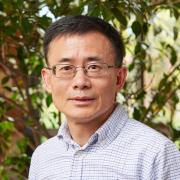
The panel includes a mix of researchers, regulators, community-based program managers and municipal policy-makers. The goal is to encourage a conversation that connects the most recent green stormwater infrastructure research, development and regulation to on-the-ground projects. The discussion will focus on questions like: Within the world of sustainable stormwater management, what do we need to care about next? What questions for research are the most pressing? Where are the gaps in knowledge? What are the barriers to widespread implementation?
Speaker Information
Dr. Ellen Gilinsky serves as Senior Policy Advisor to
the Acting Assistant Administrator for Water in the Office
of Water at the Environmental Protection Agency. Prior to
this appointment she spent seven years as the Director of the
Water Division at the Virginia Department of Environmental
Quality (DEQ), where she supervised a diverse array of
water quality and quantity programs. She also served for
five years at DEQ as Manager of the Office of Wetlands and
Water Protection, helping to craft Virginia’s non tidal wetlands
program. Dr. Gilinsky has twelve years of experience as an
environmental consultant at several regional and national
environmental engineering firms, focusing on water issues. Dr.
Gilinsky received her B.A. in Biology from the University of
Pennsylvania and her Ph.D. in Zoology, with a concentration
in Aquatic Ecology, from the University of North Carolina at
Chapel Hill. Among her other professional accomplishments,
she was a Past President of the Association of Clean Water
Administrators, held a gubernatorial appointment to the State
Advisory Board of the Virginia Water Resources Research
Center and was an Adjunct Faculty member at Virginia
Commonwealth University in the Departments of Biology and
Environmental Studies.

Speaker Information
Mike Houck, Executive Director of the Urban Greenspaces
Institute, has worked on local, regional, and national urban
park and greenspace issues since 1980 when he founded
the Urban Naturalist Program at the Audubon Society of
Portland. Houck’s work over the past twenty years has
focused on integration of the built and natural environments
in the Portland-Vancouver region and incorporating green
infrastructure for the city of Portland’s watershed and
stormwater planning efforts. He is co-founder of The
Intertwine Alliance a new nonprofit dedicated to creating
a world class park, trail, and natural area system for the
Portland-Vancouver metropolitan region. The Alliance is also
a member of the national Metropolitan Greenspaces Alliance
whose members represent Chicago, Los Angeles, Houston,
Cleveland, Milwaukee, San Francisco Bay Area, and Portland
metropolitan greenspace initiatives.

Speaker Information
Aaron Koch is the Deputy Commissioner for
Sustainability in Chicago’s Department of Water Management.
He is responsible for implementing the water initiatives in
Sustainable Chicago 2015, Mayor Rahm Emanuel’s roadmap
for environmental stewardship and economic development.
Aaron previously served as a Senior Policy Advisor in the
New York City Mayor’s Office of Long-Term Planning and
Sustainability. He was an author of the water chapters of
PlaNYC, Mayor Michael Bloomberg’s sustainability plan,
as well as the New York City Wetlands Strategy and the
Sustainable Stormwater Management Plan. As part of this
work, he was a creator of New York City’s strategy to improve
stormwater management through a $1.5 billion public
investment in green infrastructure. He holds a Bachelor of
Science in Architecture from the University of Minnesota-
Twin Cities, a Master of City Planning from the University
of Pennsylvania, and is a faculty member in Columbia
University’s Master of Sustainability Management program.

Speaker Information
Dr. Franco Montalto, PE is a licensed civil/environmental engineer and hydrologist with 20 years of experience working in urban and urbanizing ecosystems as both a designer and researcher. His experience includes planning, design, implementation, and analysis of various natural area restoration and green infrastructure projects. As an Associate Professor in Drexel University’s Department of Civil, Architectural, and Environmental Engineering, he currently directs the Sustainable Water Resource Engineering Laboratory. He also heads up the Green Infrastructure Sector of the NOAA-funded Consortium for Climate Risk in the Urban Northeast (CCRUN), a five-year research initiative. Dr. Montalto is also the founder of eDesign Dynamics LLC, a consulting firm based In New York City that specializes in green infrastructure and ecological restoration. Previously, Dr. Montalto served as the Wetlands Engineer at the New Jersey Meadowlands Commission, where he was responsible for the engineering design of the 139-acre Mill Creek Marsh in Secaucus, NJ among other large urban wetland restoration projects. He has worked overseas in various capacities in Europe, Africa, the Caribbean, and Latin America and is the author of numerous publications in the water resources and environmental fields. He was also formerly a Fellow at the Earth Institute at Columbia University, a Fulbright Scholar, and an Adjunct Professor at the Cooper Union for the Advancement of Science and Art, where he received his first degree. His graduate degrees are from Cornell University.
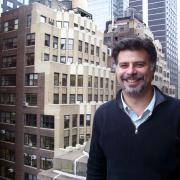

How are coastal cities working with natural capital to attenuate sea level rise and coastal flooding in extreme events? This panel will build on experience and case studies to elaborate on ecosystem services related to coastal adaptation. Building on the discussions on models in the morning, we will explore the relevance and shortfalls of the models used to assess coastal risks. What are the roles of FEMA, the Federal Flood Insurance Program, community disaster recovery funds and block grants, and scientists analyzing tradeoffs between gray (levees) and green (marshes)? What lessons does New Orleans have for New York? What lessons are valuable across urban to rural gradients?
Speaker Information
Roselle Henn is Deputy Director for the US Army Corps
of Engineers (USACE), National Planning Center of Expertise
for Coastal Storm Risk Management (PCX-CSRM), leading
the Hurricane Sandy North Atlantic Coast Comprehensive
Study (NACCS), from Jan 2013 to present. While compiling
the study, scientists and engineers will consider future sealevel
rise scenarios and integrate economic, climatological,
engineering, environmental and societal data from Virginia
to Maine to develop a comprehensive framework to reduce
coastal flood risk and promote resiliency. Ms. Henn is the
Environmental Team Leader for the USACE North Atlantic
Division (NAD) with primary responsibility for ecosystem
restoration throughout the region which extends from Maine
to Virginia. In this capacity she is the Senior Subject Matter
Expert on environmental policy and compliance, leading
environmental teams located in NAD’s five Districts (New
England, New York, Philadelphia, Baltimore, and Norfolk)
working on watershed planning and estuarine restoration.
She is the regional environmental interface with other Federal
Agencies including EPA, NOAA, and DOI, Regional Partners,
and NGOs and represents NAD in collaborative efforts which
transcend District/political boundaries, such as the restoration
and protection of Chesapeake Bay, the Susquehanna and
Delaware River Basin Commissions, and the Interstate
Commission for the Potomac River Basin and in Climate
Change initiatives, Coastal America, the Mid-Atlantic Federal
Partners on the Ocean, and the Corps Invasive Species Leaders
Team.

Speaker Information
Dr. Denise Reed is the Chief Scientist for the Water Institute
of the Gulf. She is a nationally and internationally recognized
expert in coastal marsh sustainability and the role of human
activities in modifying coastal systems. She has worked
on coastal issues in the US and in other parts of the world,
for over 30 years. Dr. Reed has been extensively involved
in restoration planning in coastal Louisiana since the early
1990’s with a focus on bringing scientific knowledge to bear in
developing sustainable solutions. Reed has also been engaged
in ecosystem restoration research and planning both in the
California Bay-Delta. She has served on numerous boards and
panels concerning the effects of human alterations on coastal
environments and the role of science in guiding ecosystem
restoration, including a number of National Research Council
Committees. She received her BA and PhD from the University
of Cambridge in England.

Speaker Information
Dr. Gavin Smith is the Executive Director of the
Department of Homeland Security’s Coastal Hazards Center
of Excellence. Dr. Smith is currently engaged in planningrelated
research within the center, focused on a national
evaluation of local and state hazard mitigation plans, the
study of state recovery plans, and the development of sea
level rise adaptation strategies. Dr. Smith has published
numerous book chapters, peer-reviewed journal articles,
and technical reports addressing a range of topics including
hazard mitigation, disaster recovery, and climate change
adaptation. Dr. Smith is an Associate Research Professor
in the Department of City and Regional Planning at the
University of North Carolina at Chapel Hill. Dr. Smith
also served as the Assistant Director for Hazard Mitigation
in the State of North Carolina. During his tenure with the
Division, the Mitigation Section administered mitigation and
disaster recovery grant funds in excess of 1.5 billion dollars
associated with 10 Presidential disaster declarations. Much
of these funds were used to acquire and relocate or elevate
over 5,000 and 500 homes respectively. Following Hurricane
Floyd, Dr. Smith served as an advisor to Governor Hunt on
policies and programs associated with long-term recovery
in North Carolina. This work led to the development of 22
state programs (totaling 836 million dollars) that addressed
local needs not met by federal assistance, including the
development of the State’s nationally recognized floodplain
mapping initiative.

Speaker Information
Daniel Zarrilli is the Director of Resiliency for the City of
New York. Mayor Bloomberg appointed Daniel to this newly
created position in June 2013 to lead the implementation of the
City’s PlaNYC resiliency report: A Stronger, More Resilient
New York. Until June 2013, he served on the Mayor’s Special
Initiative for Rebuilding and Resiliency, leading the City’s
efforts to develop a comprehensive coastal protection plan
for the five boroughs. In a previous role, he was the Senior
Vice President for Asset Management at the New York City
Economic Development Corporation (NYCEDC), responsible
for maritime assets and operations, including the City’s two
cruise terminals and numerous other transportation and
waterfront assets. Prior to joining NYCEDC, Daniel spent five
years with Bechtel Infrastructure Corp. He is a Professional
Engineer in the State of NY and holds an MS in Civil and
Environmental Engineering from MIT and a BS in Civil
Engineering from Lehigh University.

Speaker Information
Dr. Felson is an Associate Professor, an urban ecologist and a registered landscape architect at Yale University. He directs the joint degree program between the School of Architecture and the School of Forestry and Environmental Studies and is the founder of Urban Ecology and Design Lab (UEDLAB). His work focuses on ecological urban designs that incorporate aspects of green infrastructure (especially water management), coastal adaptation and constructed plant communities. He was part of Yale’s core team on a federal HUD Hurricane Sandy initiative, Rebuild by Design and is currently serving as an advisor to the State of Connecticut through an Executive Order from the Governor on the “State Agencies for Resilience” (SAFR). He served as the lead designer for the State of Connecticut’s HUD National Resilience Disaster Competition with a proposal that awarded the state 54 million. Pioneering coastal green infrastructure, Felson built bioretention gardens in Bridgeport, CT and developed the first Coastal Resilience Plan in Connecticut for the town of Guilford. Through the UEDLAB Felson also worked with the Nature Conservancy on the Regional Framework for Coastal Resilience in Southern Connecticut, a USDA funded project. Working with town representatives, the team developed near, mid and long term proposals.
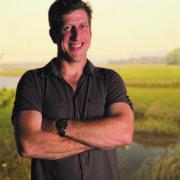
This panel advances the notion that social and cultural processes are critical to the health and resilience of urban ecosystems; that these processes are complex; and that they require inquiry. The questions remain: how do we understand the role of social and cultural processes and infrastructure in urban ecosystems; and how do we factor this understanding into ecological assessments that so often rely on quantitative data and biophysical indicators? The conversation will explore the dynamics of social and cultural values and their bearing on urban ecosystem services, natural resource management, and human well-being.
Speaker Information
Lindsay K. Campbell is a research social scientist with the USDA Forest Service Northern Research Station, based at the New York City Urban Field Station (www.nrs.fs.fed.us/nyc). Her current research explores the dynamics of urban environmental governance, natural resource stewardship, and sustainability policymaking. Dr. Campbell holds a BA in Public Policy from Princeton University, a Masters in City Planning from MIT, and a PhD in Geography from Rutgers University. She is the author of City of Forests City of Farms, Sustainability Planning for New York City's Nature, published by Cornell University Press.
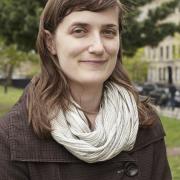
Speaker Information
Morgan Grove is a social scientist and Team Leader for the USDA Forest Service’s Baltimore Urban Field Station and is a lecturer at Yale University. He joined the USDA Forest Service in 1996 and has been a Co-Principal Investigator in the Baltimore Ecosystem Study (BES) since its beginning in 1997. Morgan has a B.A. from Yale College with a dual degree in Architecture and Environmental Studies, a M.F.S. in Community Forestry from Yale University and a Ph.D. in Social Ecology from Yale University.
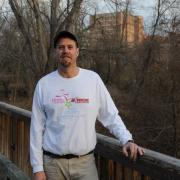
Speaker Information
Hans Hesselein, Executive Director of the Gowanus Canal
Conservancy, grew up on a family-owned nursery in central
New Jersey, cultivating a passion for plants at a young age.
Hans graduated with a Bachelor’s degree in Landscape
Architecture from North Carolina State University in 2004. He
has spent time working internationally in Germany as well
as at several domestic landscape architecture firms, including
a position as Associate at Dirtworks, PC in Manhattan. Hans
joined the Gowanus Canal Conservancy as the Director of
Special Projects in December, 2010 and was asked to serve
as Executive Director in 2013. Throughout his time at the
Conservancy, Hans has been responsible for developing and
managing green infrastructure projects, watershed planning
initiatives and volunteer stewardship programs. Hans comes
to the Conservancy with a strong background in horticulture,
construction technology, community engagement and
landscape architecture.

Speaker Information
Dr. Keith G. Tidball is a Senior Extension Associate in the
Department of Natural Resources at Cornell University where
he serves as Associate Director of the Civic Ecology Lab &
Program Leader for the Nature & Human Security Program.
He also represents Cornell as the New York State Coordinator
for the NY Extension Disaster Education Network (NY EDEN)
and as a program area leader for NYS Resiliency Institute for
Storms and Emergencies (RISE). Tidball’s research focuses
on the dynamics of social-ecological resilience and natural
resource management in disasters and war. He has recently
published two books on the subject, and he is involved in
multiple research projects funded by the US government
agencies and private foundations. Tidball is a Fellow of
the David R. Atkinson Center for a Sustainable Future and
was recently appointed the 2014 USDA NIFA Division of
Family and Consumer Sciences/Center for International
Programs Visiting Scholar for his work with extension disaster
education.


Speaker Information
Gaboury Benoit is the Grinstein Professor of Environmental Chemistry at Yale’s School of Forestry and Environmental Studies, where he has served as the Associate Dean for Research and Director of Doctoral Studies. He has a joint appointment in Yale’s Environmental Engineering program. He founded Yale’s Center for Coastal and Watershed Systems in 1992 and acted as its faculty director. He is also faculty director of Yale’s Hixon Center for Urban Ecology.
Dr. Benoit received his bachelor’s degree from Yale’s Department of Geology and Geophysics where he studied environmental chemistry. After working for three years in an independent environmental consulting firm, he earned a master’s in Water Resources Engineering from MIT (1985) and a PhD in environmental chemistry from the M.I.T.-Woods Hole joint program (1988).
Gabe is a nationally recognized expert on environmental chemistry and the impacts of land development on water. Recent research includes urban environmental issues and watershed based studies of nonpoint source pollution. Among his many publications, he co-authored the book New Strategies for America's Watersheds: Integrating Ecological, Economic, and Social Factors that was published by National Academy Press in 1998. Another important recent publication is the book Land and Natural Development (L.A.N.D.) Code, co-authored with Diana Balmori of Yale’s Architecture School, and which is a set of guidelines for sustainable land development.
